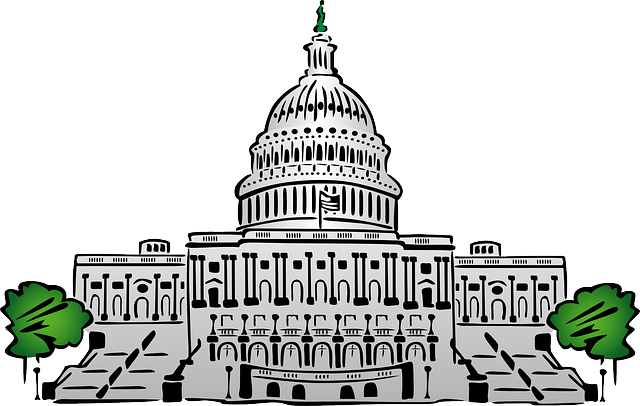
A Path Through the Financial Jungle
Navigating the world of home loans can feel like traversing an uncharted jungle. With a myriad of options, it's easy to get lost in the jargon and financial complexities. Well, worry not! We're here to hack away the thickets and shed light on the path. Our primary focus? The key differences between VA, FHA, and USDA loans.
What's the Difference Between VA, FHA, and USDA Loans?
Distinguishing between these three loan types resembles splitting hairs for the uninitiated. But, understanding their unique attributes and differences is crucial to making informed decisions. So, let's dive in!
Understanding VA Loans: The Veterans' Vantage

VA loans are a godsend for our brave service members. Backed by the Department of Veterans Affairs, they're designed specifically for veterans and active-duty military personnel.
The Perks of VA Loans
There are a few benefits to VA loans that make them stand out from the crowd.
No Down Payment: VA loans often require no down payment, which is a significant benefit for those who've served our country and reduces the stress of trying to find down payment assistance programs for you home loan.
Having a $0 down payment amount reduces the barrier to entry for the eligible veterans that serve our country. However, you will have an upfront funding fee, but you can roll it into the mortgage.
No Private Mortgage Insurance (PMI): Unlike other loan types, VA loans don't require mortgage insurance, which can save borrowers a pretty penny over the life of the loan.
Flexible Credit Requirements: VA loans typically have more lenient credit requirements, which can be a life raft for low credit score buyers.
FHA Loans: The Flexible Friend

Backed by the Federal Housing Administration (hence the FHA moniker), the FHA mortgage is designed to help low-to-moderate-income borrowers become homeowners but has income limits.
The Boons of FHA Loans
FHA loans have their unique set of advantages.
Low Down Payments: As low as 3.5% down payment can make the dream of homeownership a reality for many.
Flexible Credit Score Standards: An FHA loan comes with more forgiving credit requirements, making them accessible to a wider range of borrowers compared to conventional mortgages.
Mortgage Insurance: Yes, this is a pro and a con. While you do have to pay for mortgage insurance, it also means that lenders are more willing to approve your FHA loan because the FHA is providing a safety net on your home loan.
USDA Loans: The Rural Benefactor

USDA loans, backed by the United States Department of Agriculture, are designed to help low-to-moderate-income buyers purchase homes in rural areas.
The Benefits of USDA Loans
A USDA loan, often overlooked, has quite a few perks.
No Down Payment: Just like VA loans, USDA loans can also be secured with no minimum down payment. However, a down payment will help lower your monthly payment.
Lower Interest Rates: USDA loans typically have lower interest rates compared to conventional loans which can significantly decrease your monthly payment.
Flexible Credit Guidelines: These loans often have less stringent credit requirements, making a USDA loan accessible to a wider audience compared to conventional mortgages.
VA vs. FHA vs. USDA: The Ultimate Showdown

Now that we've taken a gander at each of these mortgage loans individually, let's pit them against each other in a head-to-head comparison:
Credit Requirements: Who's the Most Forgiving?
When it comes to credit score requirements, FHA and USDA loans typically accept lower scores than conventional loans. However, VA loans take the cake with the most lenient credit requirements for people with lower credit scores.
If you meet the minimum credit score requirements for the loan amount, you may have a higher interest rate depending on the loan option you go with. Depending on your loan term and loan amount, this can be thousands of dollars over time.
Down Payment: Who Wants the Least?
In the battle of down payments, VA and USDA loans emerge as clear winners. Both offer as low as zero-down payment options. FHA loans, while not quite as generous, still only require a minimum down payment of 3.5%.
Mortgage Insurance: Who’s the Cheapest Date?
With VA loans, there's no need for private mortgage insurance (PMI). FHA loans require both upfront and annual mortgage insurance premiums. USDA loans require an upfront guarantee fee and an annual fee, similar to PMI. So, in the PMI department, VA loans take the trophy.
Having no monthly mortgage insurance premium saves you a ton of money over time and allows you to save those monthly payments to put toward the principal.
Best for Low-Income Buyers: Stretching Every Dollar
When it comes to catering to low-income buyers, FHA and USDA loans often come out on top. FHA loans are popular due to their flexible credit requirements and low down payment. USDA loans, on the other hand, specifically target low-to-moderate-income buyers in rural areas and offer 0% down payment options.
Highest Loan Limits: Sky's the Limit
VA loans generally have a loan limit of $726,200 in most counties, but it's county by county. VA borrowers can buy a whole lot of house with that kind of money. However, FHA and USDA loans have specific loan limits that vary depending on the property's location and other factors.
Lowest Interest Rates: Every Penny Counts
Generally, VA and USDA loans offer the lowest interest rates. It's important to remember, though, that interest rates can vary based on credit scores, lender policies, and market conditions. For rural homebuyers, the USDA loan programs are usually a better option than a conventional mortgage.
Closing Costs: The Final Hurdle
Closing costs can be a significant expense. With VA loans, the seller can pay all the buyer's loan-related closing costs and up to 4% in concessions. FHA and USDA loans allow sellers to contribute toward closing costs, but the amount may be limited.
As long as you meet the VA home loan eligibility requirements, it seems like a winning solution out of the government backed loans. Out of the different government agencies, the veterans administration makes it the easiest to get into your dream home.
Loan Terms: The Long and Short of It
VA, FHA, and USDA loans all offer a variety of loan terms. VA and FHA loans offer 15 or 30-year terms, while USDA loans generally have 30-year terms. The right loan term for you depends on your financial goals and circumstances.
Either way, making your payments on time will build your credit and give you a higher credit score, which can help you refinance for a lower interest rate in the future.
FAQs: Clearing Up the Confusion

Let's tackle some of the most common questions about VA, FHA, and USDA loans.
Q1: Can I qualify for these loans with bankruptcy on my record?
Yes, you can, but it largely depends on how long ago the bankruptcy was discharged. For FHA and USDA loans, the waiting period is usually two years, while VA loans might require only a two-year wait.
Q2: Can I apply for a VA loan if I'm not a veteran?
No, VA loans are exclusively for active-duty military personnel, veterans, and eligible surviving spouses. However, there are other options that are backed by the federal government. As a mortgage broker, we can guide you in the right direction based on your loan eligibility.
Q3: Can I use a USDA loan to buy a home in a big city?
Generally, no. USDA loans are intended for properties in rural areas. However, "rural" is defined loosely and includes many suburban areas.
Q4: Can I get rid of PMI on an FHA loan?
In most cases, you'll need to refinance loans from an FHA loan into a conventional loan to eliminate PMI. If you can meet the down payment requirements, the monthly mortgage insurance requirement goes away.
Q5: Can I get a second VA loan?
Yes, under certain circumstances, you might be able to have two VA loans at once or get a second VA loan after experiencing foreclosure or bankruptcy. Call us for guidance on your situation and we'll help you get your VA mortgage.
Q6: Can I buy a fixer-upper with these loans?
Yes, but FHA loans are usually the go-to option for this scenario as they have a specific program (the FHA 203k loan) for renovations.
Q7: What is the VA funding fee, and can it be waived?
The VA funding fee is a charge to guarantee the loan with no down payment and no mortgage insurance. It can be waived for those receiving VA disability compensation and surviving spouses of veterans who died in service or from a service-connected disability. You can pay this as an upfront fee or roll it into the mortgage. Think of it as the VAs way to offset not having down payment requirements by having the upfront fee.
Q8: What is the minimum credit score required for these loans?
For VA loans, there's no official minimum, but many lenders look for a score of 620 or higher. FHA loans require a minimum score of 500-580, depending on the down payment. USDA loans typically require a score of at least 640.
Q9: Can I get an FHA or USDA loan if I've used a VA loan before?
Yes, you can use FHA or USDA loans even if you've used a VA loan before. Each program has its own separate eligibility requirements.
Q10: Can closing costs be included in the loan amount for VA, FHA, or USDA loans?
Generally, for VA and USDA loans, closing costs can't be included in the loan. However, FHA loans allow some closing costs to be rolled into the loan under certain circumstances.
Finding the Perfect Fit
Understanding the difference between VA, FHA, and USDA loans is the first step toward making an informed decision about your financial future. It's crucial to remember that there's no one-size-fits-all answer here. What matters most is finding the loan that suits your needs and circumstances, not your down payment size, interest rate, or credit score.
Remember, you're not alone in this journey. Contact us, and we'll help guide you through home loans. So, here's to finding your perfect financial fit and moving one step closer to owning your dream home!


